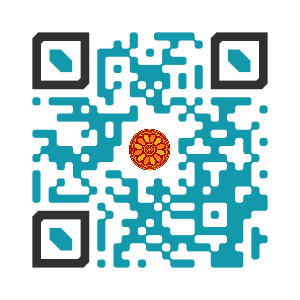
:: International Transaction Journal of Engineering, Management, & Applied Sciences & Technologies
http://TuEngr.com

ISSN 2228-9860
eISSN 1906-9642
CODEN: ITJEA8
FEATURE PEER-REVIEWED ARTICLE
Vol.11(13) (2020) |
-
DEVELOPING ENGINEERING STUDENT CREATIVITY IN MATHEMATICS CLASSES AT TECHNICAL UNIVERSITY
 Elena A. Zubova (Department of Business Informatics and Mathematics, Tyumen Industrial University, RUSSIA ).
Elena A. Zubova (Department of Business Informatics and Mathematics, Tyumen Industrial University, RUSSIA ).
Disciplinary: Engineering Mathematic Education, Resource-based Learning, Teaching and Instruction (Method, Technique, and Strategy).
DOI: 10.14456/ITJEMAST.2020.261
Keywords: Engineering student creativity; Group method; Studies of mathematics; Resource-based classes; Student learning process; Career-related assignments; Solvability of math problems.
AbstractThe paper presents the teaching technique to develop university student creativity in mathematics classes. The technique lies in the resource-based classes when students gradually accumulate knowledge in several subjects, and then, in the resource-based interaction, in a group, they solve career-related assignments. We tested the approach by comparison testing of experimental and baseline groups of students. We had decided that assignments should meet the requirements including the following: a plot should be close to real phenomena from future careers of students, problem statements should very well to make students be not only able to solve the problem, but also make up their new problem, in the process of which they develop their creativity. In the experimental group, students started feeling better familiar with career-related assignments, desired to obtain as much useful information as possible from studies of the real process, unlike baseline group students. The introduction of resource-based classes in the learning process results in a visibly higher interest in career-related assignments and better communicability in the student community (small groups).Paper ID: 11A13O
Cite this article:
Zubova, E.A. (2020). DEVELOPING ENGINEERING STUDENT CREATIVITY IN MATHEMATICS CLASSES AT TECHNICAL UNIVERSITY. International Transaction Journal of Engineering, Management, & Applied Sciences & Technologies, 11(13), 11A13O, 1-9.
References:
Afanasyev, V.V. (1996). Development of Students' Creativity when They Solve Mathematical Problems. Yaroslavl: Publishing House of YSPU named after K.D. Ushinsky.
Altshuller, G.S. (1979). Creativity as a STEM Discipline (Theory of Inventive Problem Solving). Moscow: Sovetskoye Radio.
Arsen'yev, K.K., & Petrushevsky, F.F. (Eds.). (1901). Encyclopedic Dictionary by Brokgauz and Efron. Vol. 32. Saint Petersburg: Akts. Obshch. "Izd. delo", Brokgauz-Efron.
Frolov, I.D. (Ed.). (1991). Dictionary of Philosophy. Moscow: Politizdat.
Golovey, L.A., & Rybalko, E.F. (Eds.). (2001). Tutorial on Developmental Psychology. Saint Petersburg: Rech'.
Gusev, V.A. (1993). Teaching mathematics and holistic development of student's personality. Proceedings of MSPU. Series: Natural Sciences, 38-47, Moscow: Prometey.
Kairov, I.A., & Petrov, F.N. (Eds.). (1965). Encyclopedia of Pedagogy. Moscow: Sovetskaya Entsiklopediya.
Krol, M.V. (2001). Psychology and Pedagogy. Moscow: Vyssh. Shk.
Litau, E.Y. (2018). Cognitive science as a pivot of teaching financial disciplines. In Proceedings of the 31st International Business Information Management Association Conference, IBIMA 2018: Innovation Management and Education Excellence through Vision 2020, 72-80.
Maklakova, N.V., Khovanskaya, E.S., Senchenkova, E.A. (2019). Role and Place of Life-Long Learning in the University Education System. International Transaction Journal of Engineering, Management, & Applied Sciences & Technologies, 10(16), 10A16D, 1-8.
Platonov, K.K. (1984). Brief Dictionary of Concept System. Moscow: Vyssh. Shk.
Poincare, J. H. (1909). Mathematical Creativity. Moscow: Tip. E. Bergmana.
Ponomarev, Ya.A. (1976). Psychology of Creativity. Moscow: Nauka.
Prokhorov, A.M. (Ed.). (1989). Soviet Encyclopaedic Dictionary. Moscow: Sovetskaya Entsiklopediya.
Rozhkov, M.I. (2002). Concept of existential pedagogy. Yaroslavl Pedagogical Bulletin, 4, 32-40.
Schukina, G.I. (1979). The Problem of Cognitive Interest in Pedagogy. Moscow: Prosveshcheniye.
Shalyutin, S.M. (1985). Artificial Intelligence: Epistemological Aspect. Moscow: Mysl'.
Shamova, T.I. (1982). Promotion of School Students' Learning. Moscow: Pedagogika.
Toomsalu, L., Tolmacheva, S., Vlasov, A., & Chernova, V. (2019). Determinants of innovations in small and medium enterprises: a European and international experience. Terra Economicus, 17(2), 112-123. DOI: 10.23683/2073-6606-2019-17-2-112-123
Vlasov, A.I., & Demin, A.A. (2017). Visual Methods of Formalization of Knowledge in the Conditions of the Synchronous Technologies of System Engineering. CEE-SECR'17: Proceedings of the 13th Central & Eastern European Software Engineering Conference in Russia, 1-7. DOI: 10.1145/3166094.3166098
Yudin, A., Kolesnikov, M., Vlasov, A., & Salmina, M. (2017). Project-oriented approach in educational robotics: from robotic competition to the practical appliance. In: M. Merdan, W. Lepuschitz, G. Koppensteiner, & R. Balogh (Eds.), Robotics in Education. Advances in Intelligent Systems and Computing, 457, Cham: Springer. DOI: 10.1007/978-3-319-42975-5_8
Zagvyazinsky, V.I. (1984). Development of students' creativity based on an independent problem analysis of learning materials. In Problem of Abilities in Soviet Psychology, 129-134. Moscow: APN SSR.
Zubova, E.A. (2008a). Criteria for selection of career-oriented research problems. Yaroslavl Pedagogical Bulletin, 4(57), 16-22.
Zubova, E.A. (2008b). Formation of creativity in future engineers. Management of Education Quality: Proceedings of the Regional Research and Methodology Conference, 101-108. Tyumen: Izd-vo TyumGNGU.
Zubova, E.A. (2011). Visual simulation in mathematics teaching to future engineers. Yaroslavl Pedagogical Bulletin, 4(2), 195-204.
Other issues:
Vol.11(12)(2020)
Vol.11(11)(2020)
Vol.11(10)(2020)
Vol.11(9)(2020)
Vol.11(8)(2020)
Vol.11(7)(2020)
Vol.11(6)(2020)
Vol.11(5)(2020)
Vol.11(4)(2020)
Vol.11(3)(2020)
Vol.11(2)(2020)
Vol.11(1)(2020)
Archives
Call-for-Papers
Call-for-Scientific Papers
Call-for-Research Papers: ITJEMAST invites you to submit high quality papers for full peer-review and possible publication in areas pertaining engineering, science, management and technology, especially interdisciplinary/cross-disciplinary/multidisciplinary subjects.
To publish your work in the next available issue, your manuscripts together with copyright transfer document signed by all authors can be submitted via email to Editor @ TuEngr.com (no space between). (please see all detail from Instructions for Authors)
Publication and peer-reviewed process:
After the peer-review process (4-10 weeks), articles will be on-line published in the available next issue. However, the International Transaction Journal of Engineering, Management, & Applied Sciences & Technologies cannot guarantee the exact publication time as the process may take longer time, subject to peer-review approval and adjustment of the submitted articles.